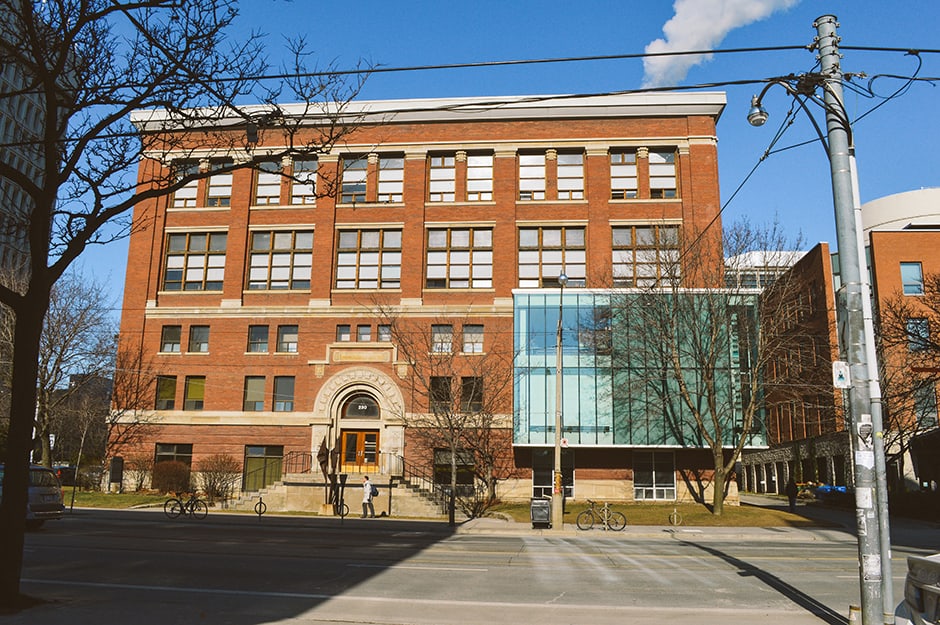The Governing Council Chamber echoed with the sound of thunderous applause on Thursday, February 26 when two motions pertaining to the Student Commons project were finally passed.
Students whistled loudly in celebration and many rose in standing ovation when the motions were approved.
The Student Commons approval process had stalled as Governing Council sought a resolution to the University of Toronto Students’ Union (UTSU) fee diversion dispute.
Revised agreement
The motions passed were the Revised Agreement for the Student Commons and the Report of the Project Planning Committee.
The major changes made in the Revised Agreement were related to the Student Commons Management Committee, the body responsible for the management and operations of the building.
Under the Revised Agreement, the Management Committee will comprise 14 members.
The agreement stipulates that all but one of the voting members must be full-time undergraduate students at the St. George Campus.
Seven of the voting members will be appointed by the UTSU Board of the Directors, and the remaining six voting members will be nominated by the UTSU executive.
The remaining non-voting member will be the facility manager, also appointed by the UTSU.
“We are pleased that the majority of the Management Committee will now be comprised of students not directly appointed by the UTSU Executive,” said Tina Saban and Connor Anear, co-heads of college at Trinity College, in a joint statement.
However, they said that they would have preferred that the membership, instead of the Board of Directors, had the chance to elect the students who will sit on the Management Committee.
Dalia Hashim, vice-president, external of the Muslim Students’ Association (MSA) at U of T, is also satisfied with the agreement.
Hashim thinks that there is room for development once the space is operational. “I believe only then will we be able to make a sound judgement about its feasibility,” she says.
“Regardless, I’m really happy that this space will be exclusively student run and I believe that was the biggest hurdle. I would definitely want to see the major clubs on campus represented on the management structure,” Hashim adds.
The Revised Agreement arose from concerns expressed by UTSU members, particularly regarding the structure of the Management Committee. The agreement also acknowledges a scenario wherein the UTSU may not be the primary representative body of undergraduates at the St. George campus. Yolen Bollo-Kamara, UTSU president, says that the agreement always contemplated such circumstances.
Funding
The commons is set to open its doors in 2017, and, as of yet, there is no indication of a plan to reimburse students who paid the levy and then graduated before they could use the space.
“I see contributed funds as part of what it is to belong to a union. We pay into something collectively to get something out collectively,” says Ben Donato-Woodger, LGBTOUT public relations coordinator.
“We feel that it is acceptable for students to contribute to a project that will have such a positive and lasting impact on student life on campus, but only after they graduate,” Saban and Anear said.
The Trinity heads also said that the Revised Agreement was passed on the assumption that the fees that are currently available would be accessible for the project. “Taking away a significant portion of these fees by reimbursing past students would likely cause even further delays, and we see this as undesirable,” they added.
Bollo-Kamara states that the referendum question on which students voted in 2007 was structured in such a way that students who will actually get to use the building will pay the majority of the costs. “It’s unfortunate that the project was delayed for so long, but I am pleased that we are moving forward,” she says.
According to the timeline outlined in the Report of the Project Planning Committee, the selection of the design team will take place between May and July of 2015, with the Construction Award given in August 2016.
The report forecasts occupancy beginning September 2017.
Hashim, Donato-Woodger, Saban, and Anear all express hope that the building will be ready for use by the forecasted occupancy date.
Students celebrate
“We are delighted that the student Commons finally passed,” Donato-Woodger says.
Donato-Woodger adds that the 24-hour accessible space “will be a boon for student organizing and empower the student movement by bringing people together, allowing for interactions that aren’t happening now and networking that can’t happen because we don’t have common space like this.”
“LGBTout is excited to come out of our closet into the Student Commons,” adds Donato-Woodger in reference to the current location of LGBTOUT’s drop-in centre in the Sir Daniel Wilson Archway.
Kriya Siewrattan, president of the Association of Part-Time Undergraduate Students, was also present at the Governing Council meeting to support the motions.
“The Student Commons is necessary for marginalized students who require a safe space on campus, especially students with disabilities, as the Student Commons is committed to being fully accessible. Overall, the Student Commons will encourage the growth of the spirit and community of the University of Toronto,” she says.
Hashim is happy that the Student Commons will open up space for clubs that need it.
“At the MSA we have 4 reoccurring events every week, attended by upward of 500 people, and so the struggle to find affordable space on campus has been very hard the last few years,” Hashim says.
“I believe that in a few years, students will wonder how the St. George campus could have existed without one,” says Bollo-Kamara.


